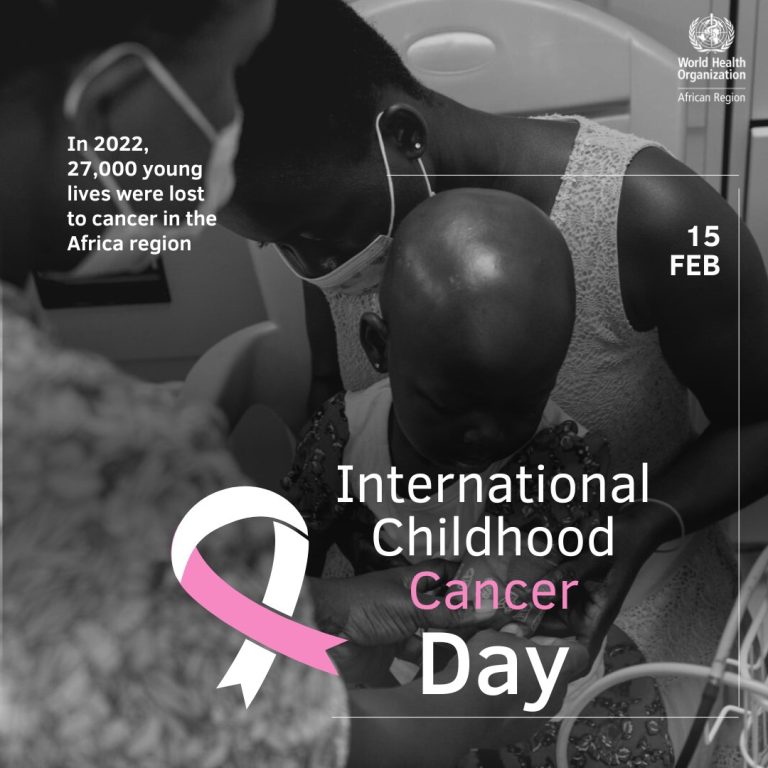As the world commemorates International Childhood Cancer Day (ICCD), the World Health Organization (WHO) says that early detection remains key to tackling childhood cancers globally.
The WHO, in a statement issued to commemorate this year’s ICCD, said that countries must strengthen the capacity of their healthcare systems, especially at the primary healthcare level.
“In 2018, WHO launched the Global Initiative for Childhood Cancer (GICC). Its main goal is to reduce the survival gap by 2030, by making sure that at least 60% of children with cancer worldwide will survive their diagnosis. GICC is a cooperative effort involving WHO on a global, regional, and country-specific scale, in partnership with St. Jude Children’s Research Hospital.
“This ambitious goal can be reached mainly by strengthening health systems, so that primary health providers – or even parents – are able to spot the early signs of childhood cancer, and a referral system can direct the child to the specialized care vital for their survival. As well as treatment, children also require focused attention for their ongoing physical and cognitive development and nutritional well-being.
“This calls for care by a committed, multidisciplinary team. Parents, general practitioners and paediatricians play a vital role in detecting childhood cancer early on. It is crucial to know the early signs and symptoms of certain cancers and stay on the lookout for them in your children.”
The global health body expressed concern that the underlying factors that contribute to childhood cancer are poorly understood, unlike cancer in adulthood.
This is in addition to the fact that only a small fraction of childhood cancers can be prevented.
“This means that the recovery of these children largely depends on the capacity of health systems to ensure timely diagnosis, early referral, and appropriate treatment. Achieving this is especially challenging in the many countries of the Region that contend with humanitarian emergencies, natural disasters, and political instability.”
The International Childhood Cancer Day (ICCD) is commemorated yearly on February 15.
The day seeks to provide awareness of childhood cancer and also promote equitable access to healthcare for all.
It is also intended to mirror the burden of the disease on patients and their families.
Statistics from the World Health Organization (WHO) reveal that about 200,000 children die annually from childhood cancer.
WHO also said that 1000 children are diagnosed with cancer every day.
“Recent medical advances make for very high chances of survival in high-income countries, where more than 80% of children diagnosed with cancer will survive. Yet only about 20% of children diagnosed with cancer will survive in some low- and middle-income countries,” the health body said.


